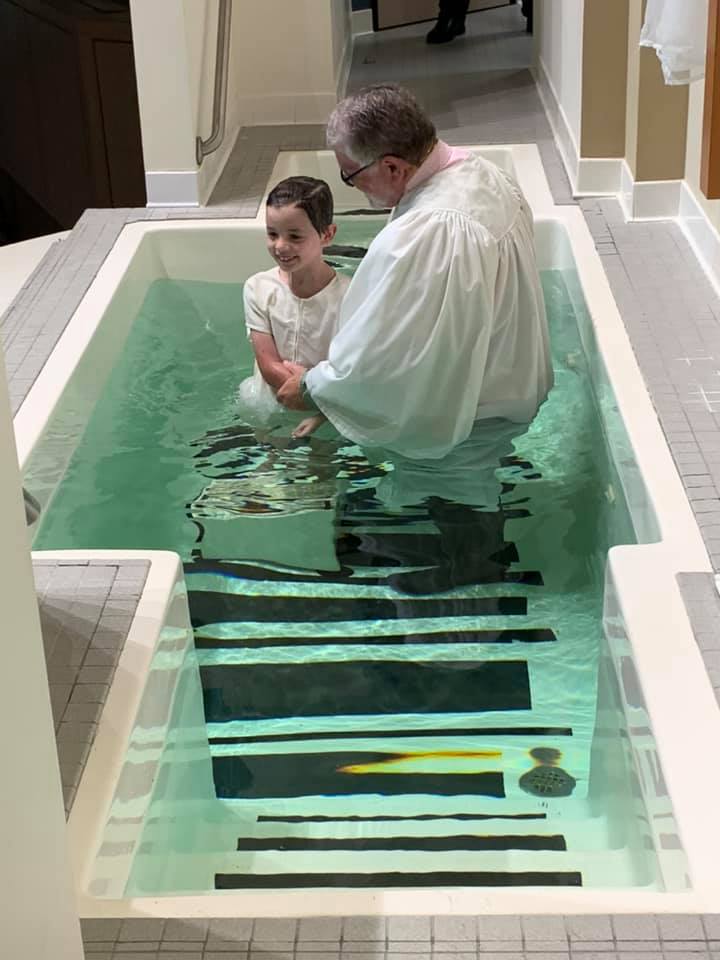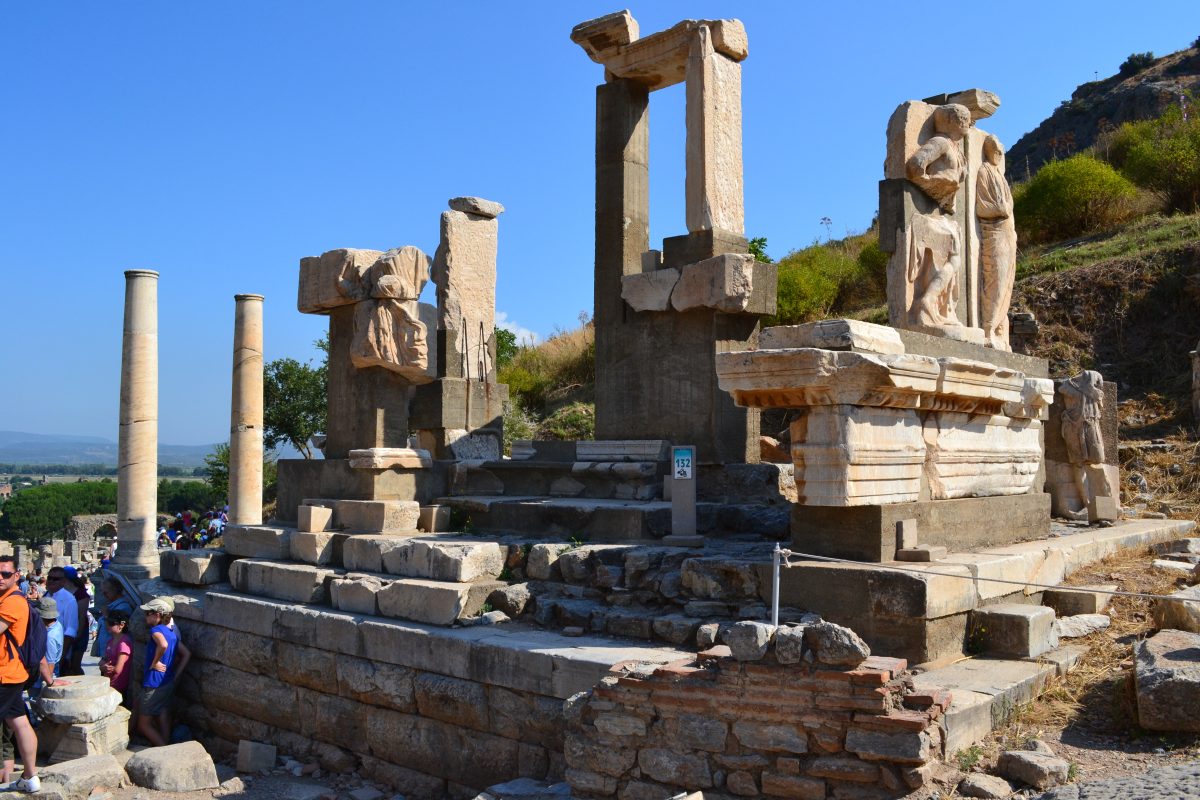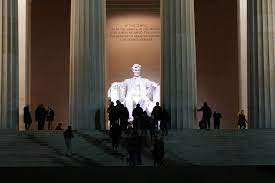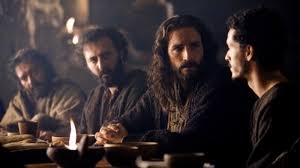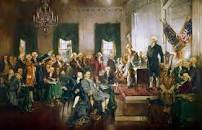Background Passages: Jeremiah 18:1-6; 2 Chronicles 1:7,10; Luke 22:42 Ephesians 2:10
A confluence of disconnected spiritual thoughts joined into one idea this week…rivulets of scripture and song flowing from different places to form one lesson, one powerful reminder of what it means to live a life obedient to God’s will. See if you can follow the path of my warped mind.
……….
Sunday’s Random Thought…
It came to mind again this week when I was lost in thought while exercising. Out of nowhere, I thought of the song, Have Thine Own Way, by Adelaide Pollard. The lines that kept repeating in my head were:
“Have Thine own way, Lord.
Have Thine own way.
Thou art the potter,
I am the clay.
Mold me and make me,
after thy will,
while I am waiting,
yielded and still.”
It seems that after graduating from college in Boston, Pollard moved to Chicago to teach in a girl’s school there. In frail health, she was drawn to first a faith healer and then to an evangelist who preached only about the end times and the second coming of Christ.
She moved back to New England feeling called to be a missionary in Africa. A series of health setbacks, detours and roadblocks derailed her plans. Despondent, she attended a prayer meeting one evening and heard an elderly woman pray: “It doesn’t matter what you bring into our lives, Lord, just have your own way with us.”
Before the evening was over, Pollard penned the words to the song that kept repeating in my brain.
“Have Thine own way…mold me and make me…Thou art the potter. I am the clay.”
It is a metaphor not uncommon in scripture. Jeremiah used it to make a point. Paul hinted at it several times in his letters.
Let that tickle the corners of your heart for a bit. We’ll come back to it.
……….
Tuesday’s Random Thought…
They had been a rebellious people. Having grown indifferent to the covenant they made with God, the people of Israel grew obstinate and defiant toward the word of the Lord. Shedding the commands of God like a dirty cloak, they held God’s law in contempt, comfortable doing their own thing.
God called them “stiff-necked.” Stubborn. Intractable. Hard to lead.
I find the term descriptively appropriate to my life at times. “Stiff-necked” was a term intimately familiar to the Jewish people. Most farmed small plots to feed their families and livestock. With oxen to pull the plow, they used an ox-goad, a pointed stick or metal rod to poke the ox to direct its path. The stubborn or stiff-necked ox would ignore the prod and go where it wanted to go.
The Hebrew people lived a roller coaster life of obedience and stubbornness. This was one of those moments at the bottom of the ride. God called Jeremiah to give a word of warning to his stiff-necked people.
Weary of their rebelliousness, God told Jeremiah to “go to the potter’s house” and wait for his word. Jeremiah sat down beside the potter and watched him work the wheel.
“But the pot he was shaping from the clay was marred in his hands; so the potter formed it into another pot, shaping it as it seemed best to him.” Then the word of the Lord came to me. He said, “Can I not do with you, Israel, as this potter does? Like clay in the hand of the potter, so are you in my hand, Israel.” (Jeremiah 18:1-6)
I like that idea. When I am misshapen, God can form me into another pot as it seems best to him.
Let that germinate in your fertile soil for a little while.
……….
Thursday’s Random Thought…
The day had been a glorious day. Jesus’ entry into the City of David found him surrounding by an adoring multitude, waving palm branches and singing praises. They wanted nothing more than to be near the one who had done so many miraculous things. Jesus spent the day preaching and teaching all who would listen.
After an evening meal that left his closest followers bewildered and perplexed, Jesus took them back out of the city into the Garden of Gethsemane to pray. Settling his weary band of disciples onto the rocky hillside, Jesus took a handful of his closest friends a little farther up the hill. “Come, pray with me,” he implored them.
Jesus walked a few steps away before falling on his knees. Leaning against a boulder with his head searching the heavens, Jesus prayed for a way out of the horror that awaited him.
“Father, if you are willing,” he prayed, “let this cup pass from me.”
I can only imagine Jesus recalling Abraham, hovering over his son, Isaac, with a knife prepped and ready to take his life in sacrifice to God. As Jesus recalled how God stayed the hand of Abraham, telling him to find the ram trapped in the thicket as a substitute for his son, I can see Jesus hoping that God would find a ram to take his place.
No new word came from above. No ram in the garden. Jesus, ever obedient to his father, prayed, what Bill Wilson, with the Center for Healthy Churches, calls the “prayer of holy indifference.”
“Yet, not my will, by thine be done.” (Luke 22:42)
Such sweet surrender. A sobering thought for any day. Take a moment. Consider its implications.
……….
Friday’s Random Thought…
In a recent study of Solomon’s life, we find him taking the reins of leadership from his father David. The task ahead must have seemed daunting. His first official act was to bring the people together to worship. A thousand sacrifices were made. Prayers voiced. Songs played and sung in adoration of their Creator God. Deliverer. Lord Almighty.
God honored Solomon’s worship. That evening he spoke to the new king and offered him a blank check of God’s promise.
“Ask me whatever you want me to give you.” Solomon answered God, “…Give me wisdom and knowledge, that I might lead this people, for who is able to govern this great people of yours.” (2 Chronicles 1:7,10)
God delivered in a significant way. Through his life, Solomon was noted for his wisdom. Scripture tells us kings and queens from all over the known world journeyed to Jerusalem to sit in counsel with the man. To pick his brain.
“All the kings of the earth sought audience with Solomon to hear the wisdom God had put on his heart.” (2 Chronicles 9:23)
Solomon allowed God to teach him. To reveal truth to him. To apply that truth to everyday life. Solomon looked at the world around him and understood how much he did not know about governing…about life…about how to be who God needed him to be. His prayer for wisdom and knowledge reveals his humility before God. In praying for God’s help, he made himself clay in the potter’s hands, a person to be molded and shaped.
Hang on to that bit of wisdom just a moment longer.
……….
There you go. Four seemingly random thoughts entering my brain at different times and for very different reasons. Let me share with you, if I can, where these streams of thought came together.
If I’m honest, I suspect my life is not that different from the lives of those who frustrated God and Jeremiah. One minute faithful. The next minute faithless. One moment seeking God. The next moment scorning God. While I want to believe I live my life more in those faithful, seeking moments, those times when I am faithless and scorning haunt me profoundly. Create more turmoil than necessary.
That’s why I the words of Have Thine Own Way resonate so deeply. Adelaide Pollard nailed it. Despite the turmoil in her life, despite every obstacle that kept her from going where she wanted to go, she penned words that speak to me every time I hear them.
“Thou art the potter. I am the clay.
Mold me. Make me.
After thy will.”
That’s the prayer of one hoping to let go of the arrogance and ignorance that tends to walk it’s own road, unwilling to listen to either the still, small voice or the clap of thunder.
The sweetest times of life come when I make myself pliable enough for God to begin again to shape me into the man he desires me to be. I see myself sitting next to Jeremiah, learning a valuable lesson from the potter. When my life is marred in God’s hands, I am glad he reshapes it as a “another pot,” remolding me in ways that seem “best to him.”
That only happens when let go of my stubborn pride and my stiff-necked attitude.
That’s where I draw inspiration from Solomon. God offered Solomon anything…everything. Yet, Solomon did not ask for riches. He did not ask for possessions or honor. He did not ask for the death of his enemies. He did not ask for a long life.
Solomon asked for God’s wisdom. I shudder to think of my response if I were allowed to rub God’s genie lamp and claim my wish. Seeking God’s will for our lives is the ultimate act of wisdom. Understanding that God’s skill at the potter’s wheel outshines our clumsy attempts to shape our own lives. Think about Pollard’s fervent prayer of submission. Solomon’s humble request for wisdom.
Then, we find ourselves in the Garden of Gethsemane. Listening to Jesus plead for God to find another way that would not take him to the cross. Spending hours agonizing over that which he was called to do.
As he prayed and listened for his Father’s word, he got to a decision point where he could walk on or walk away. His prayer was perfect. A prayer indifferent to his own will and wish. “Not my will, but yours be done.”
In the silence immediately after that prayer, I believe a calm settled in Jesus’ heart. A peace in knowing that if he remained obedient, all would be well. That God’s purpose and plan for his life and for the world, would be satisfied.
So, recognizing my tendency to be stiff-necked when it comes to what God desires of me, I lean upon a song that asks God to mold me, like a potter, after his will, not mine. I seek his wisdom, knowing his understanding far exceeds my limited abilities. When submission and humility united, the prayer of holy indifference is so much easier to pray.
Nevertheless, Father, not my will, but yours be done. weet surrender of one completely in God’s will.
Today’s Last Random Thought…
As I finished this meandering idea, hoping it would make sense, one more verse came to mind. One more random…God-inspired…thought.
Paul, writing to the church in Ephesus, reminded them that the grace gift of salvation that God provided gave them divine purpose. He said,
“We are God’s workmanship, created in Jesus Christ, to do good works, which he determined in advance for us to do.’” (Ephesians 2:10)
The word Paul uses for “workmanship” can be translated “work or art” or “masterpiece.” I like that idea, particularly in light of my other random thoughts.
The potter is also an artist. As capable with a cup as with a sculpture. As the works of God’s hand, carefully shaped and molded into a masterpiece of his will and way, we are called then to do the good work he has planned for us to do. Capable of doing it well. Capable of doing it right. Capable of doing it consistently.
All it required is submission, humility, surrender and the willingness to let the potter work.
Now, you catch a glimpse of how my mind works. I just hope there is a clear message buried in the meandering madness.

